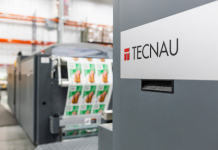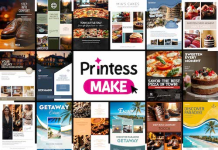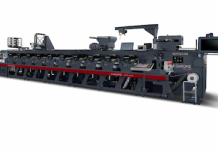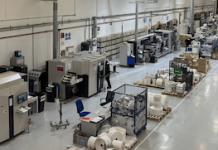According to Laurel Brunner of the Verdigris Project, much more needs to be done to change behaviour. In the graphics business we have made massive progress from where we were 40 years ago, but we could still do more.
We hear every day almost about how some mega corporation is doing just so very much to help the planet. Most of it we know is stretching reality, the slick presentation of marketing professionals with questionable consciences. They’re just doing their jobs right? And if they are telling fibs, that isn’t their problem. But organisations misrepresenting their green credentials undermines public trust that the climate crisis is real or that they have personal responsibility for it. In the printing industry we have some egregious examples of bad practice, particularly amongst manufacturers in the digital printing sector. But the problem of misrepresentation isn’t limited to printing press manufacturers.
Banks and corporations, towns and regions are also guilty of presenting a rosier picture of their efforts than the facts support. Process streamlining and waste management have been more about commercial survival than a deep and sincere commitment to the environment, while automation and efficiency can still yield substantial commercial gains.
When it comes to environmental claims, integrity matters, both within this industry and throughout its supply chains and customer sectors. The United Nations (UN) has finally recognised this and in the words of António Guterres, the UN’s Secretary General, ‘We must have zero tolerance for net-zero greenwashing’. The UN has recently published a report from its snappily named High-level Expert Group on the Net-zero Emissions Commitments of Non-State Entities. The report provides guidance to help organisations present their environmental data without making false claims. The objective is to move all of us more efficiently towards net zero.
The guidance comprises 10 recommendations that organisations can use to plan and execute their movement towards net zero. The first step obviously is committing to do so and there follows various stages in the process such as shifting from fossil fuels usage to renewables and ending with ‘Accelerating the Road to Regulation’. This chapter encourages regulators and standards bodies to develop tools to help fulfil net zero pledges, plans and disclosures. It should ring alarm bells because it is basically a call to governments to intervene with net zero legislation.
The printing and publishing industries, like all others, can do more to improve your environmental impact. So if you are out of ideas because you are already squeaky green, the UN report is worth a closer look. Our manufacturing community and industry associations will find it especially worthwhile. You can read the report for yourself here.
This article was produced by the Verdigris Project, an industry initiative intended to raise awareness of print’s positive environmental impact. Verdigris is supported by: FESPA (www.fespa.com), Fujifilm (www.fujifilm.com/sustainability/), HP (www.hp.com), Kodak (www.Kodak.com/go/sustainability), Practical Publishing (www.practicalpublishing.co.za), Miraclon (https://miraclon.com), Unity Publishing (http://unity-publishing.co.uk) and Xeikon (www.xeikon.com).
THE VERDIGRIS PROJECT
http://verdigrisproject.com/





















